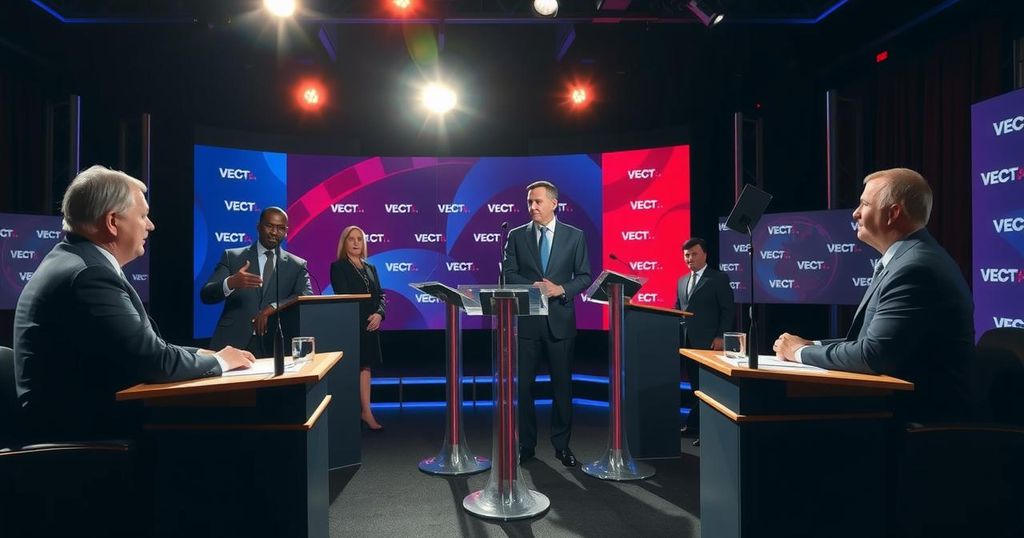Colorado is moving toward a proposed nonpartisan top-four primary and instant ranked-choice runoff, backed by business interests but opposed by state political parties. This change could affect voter engagement and influence congressional races, reflecting broader electoral reforms being considered in multiple states. Strong opinions exist on both sides regarding the efficacy of this system, with implications for political competitiveness and party control.
The state of Colorado is witnessing significant changes regarding its electoral system, transitioning away from traditional partisan primaries in favor of a proposed nonpartisan top-four primary coupled with an instant ranked-choice runoff in the general election. This reform is noteworthy as it is supported by major business interests, but it faces opposition from both major political parties in the state. The implications of this shift could extend beyond Colorado, influencing congressional races and reshaping how citizens engage with the political process. Currently, Colorado stands among seven states considering similar reforms, each responding to voter dissatisfaction with various approaches. Alongside Colorado, states such as Nevada, Arizona, Idaho, and others are exploring different models of election mechanics, including top-two systems, open primaries, and ranked-choice voting. For example, Alaskan voters will soon decide whether to revert to their former primary system, which uniquely has inspired other states to contemplate electoral adjustments. Supporters of the proposed changes argue that a nonpartisan primary could enhance voter engagement and result in more competent representatives. However, critics caution that it might lead to disarray and an increased influence of dark money in politics. Proponents highlight that many significant city officials and Democratic leaders back the initiative, while resistance arises from established party members and lawmakers, including members from both political parties. The discussion concerning these reforms is characterized by divergent viewpoints among Colorado’s representatives. Democratic Senator Michael Bennet articulates skepticism, questioning the efficacy of the proposed changes: “If it passes and it turns out it doesn’t work, how are we going to fix it?” Conversely, Senator John Hickenlooper feels optimistic, stating that the changes represent a “win-win” situation that could galvanize voter participation. Former Republican congressman Ken Buck views the reforms as beneficial for enhancing electoral competitiveness for his party. He points out the dissatisfaction within both party lines and emphasizes that existing Republican candidates often lack the legislative focus necessary for effective governance. The nonpartisan primary model that Colorado contemplates has precedents in Alaska, where many voters have successfully navigated the system, allowing for more diverse candidate representation and opportunities for prominent independents to thrive. In Colorado’s case, the proposals are expected to be tested in elections as soon as 2026 or 2028, particularly with some lawmakers, such as Hickenlooper, up for reelection.
The evolving nature of electoral systems in the United States reflects a broader response to voter frustrations regarding partisanship and political representation. Colorado’s proposed nonpartisan top-four primary system seeks to reduce the grip of political parties over the electoral process, potentially allowing for a more diverse array of candidates. This development mirrors similar movements across several states that are grappling with how to ensure fair representation and invigorate voter participation amid growing disenchantment with traditional party politics. The outcomes of these initiatives could significantly influence the national political landscape, especially in states with shifting demographic and political dynamics.
In summary, Colorado’s proposed transition to a nonpartisan primary system symbolizes a significant shift in the electoral landscape aimed at reducing party influence and increasing voter engagement. This initiative reflects a broader trend across the nation as various states experiment with electoral reforms in response to public dissatisfaction with the current political climate. The debates surrounding these potential changes epitomize the complexities inherent in reshaping electoral systems and the ongoing struggle for more representative democracy.
Original Source: www.semafor.com






